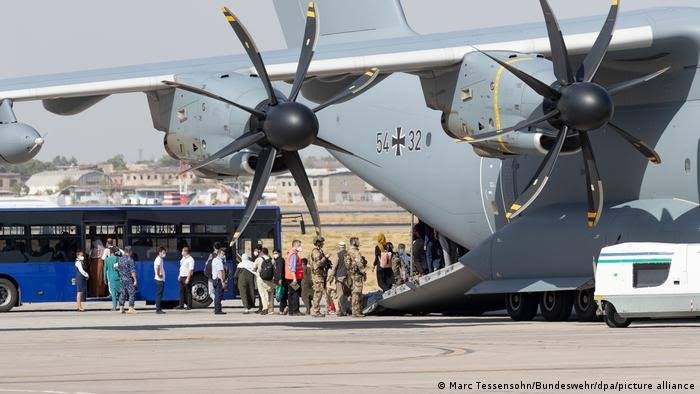Delay in Afghan Citizens’ Transfer to Germany and Cancellation of Charter Flights

Weezha Roz-Kabul– According to reports from German media, the German government has postponed the transfer of hundreds of Afghan citizens to the country and canceled two charter flights that were supposed to transport them.
These actions are part of Germany’s resettlement program to relocate eligible Afghans.
More than 14,080 Afghans, who had previously received approval to enter Germany, are still waiting for their transfer.
The majority of these individuals are currently residing in Afghanistan, Pakistan, and Iran.
The transfer program was halted two months ago due to security concerns and is expected to resume in June with new safety guidelines.
Two charter flights, which were part of this program, were canceled.
These flights were meant to transport hundreds of Afghans, including human rights activists, journalists, and former German government employees.
Some of the applicants in Pakistan and Iran have become homeless and are unable to return to Afghanistan for various reasons.
The German Ministry of the Interior has stated that efforts to abuse the visa process have been identified, leading to a temporary suspension of the procedure.
These abuses have been discovered in a few isolated cases.
Germany’s general elections, scheduled for February 23, 2025, and increased focus on migration policies following recent attacks (such as the car attack in Munich), may influence government decision-making.
Organizations like Mission Lifeline have accused the German government of “abandoning applicants in dangerous conditions.”
Axel Steier, the founder of the organization, stated: “We promised people a future for years, but now we have left them out in the rain.”
Members of Germany’s Left Party argue that the verification system in identifying abuses has been effective and that halting the transfer program is unreasonable.
Following the Taliban’s return to power in 2021, Germany launched a program to relocate its local collaborators (such as translators and employees of German institutions, as well as women’s rights activists).
By August 2024, around 15,759 individuals had been transferred to Germany.
This program includes two lists: one for people who worked with German institutions and another for those who are at risk due to their cultural or social activities.
The German government has stated that it is working to resume the transfer process by implementing new security mechanisms (such as security interviews).
However, the absence of a German embassy in Afghanistan and the need for coordination with intermediary countries (such as Pakistan) has created challenges.
Conclusion:
The delay in transferring Afghans and the cancellation of charter flights reflect the security and political challenges Germany faces in managing its migration programs.
While the government emphasizes the importance of securing the process, criticism over the humanitarian consequences of these delays continues.
The success of this program will depend on Berlin’s ability to balance security requirements with its moral commitments.
Weezha Roz




